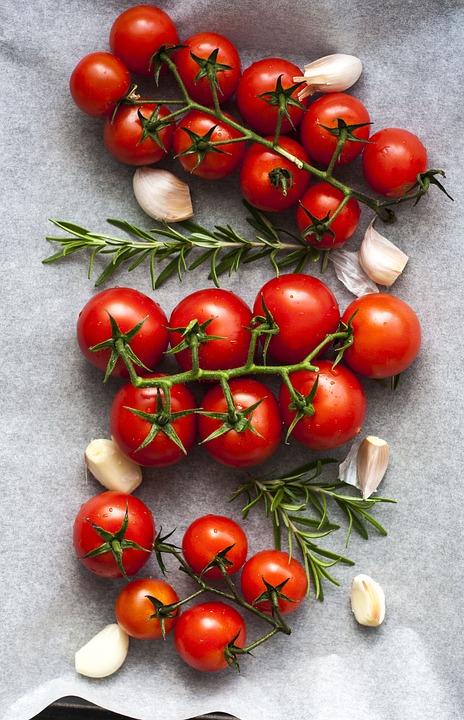Bariatric Foods To Eat: A Guide to Healthy Eating After weight Loss Surgery
Introduction
Congratulations on taking the important step towards better health by undergoing bariatric surgery! Now that you have made this commitment to yourself, it is essential to pay attention to the types of foods you are consuming to ensure successful weight loss and overall wellness. In this article, we will explore the best bariatric-friendly foods to eat post-surgery, as well as provide tips on how to maintain a healthy diet for long-term success.
Protein-Rich Foods
Protein is a crucial nutrient for individuals who have undergone bariatric surgery, as it helps with muscle maintenance, wound healing, and overall satiety. After surgery, it is recommended to consume at least 60-80 grams of protein per day to support your body’s needs. Some excellent sources of protein for bariatric patients include lean meats such as chicken, turkey, and fish, as well as tofu, eggs, and Greek yogurt.
Vegetables and Fruits
Incorporating a variety of colorful vegetables and fruits into your diet is essential for obtaining essential vitamins, minerals, and fiber. While some fruits and vegetables may be difficult to digest immediately after surgery, there are plenty of options that are gentle on the stomach and packed with nutrients. Opt for softer fruits like berries, bananas, and applesauce, as well as cooked vegetables such as carrots, sweet potatoes, and zucchini.
Whole Grains and Complex Carbohydrates
Whole grains and complex carbohydrates provide sustained energy and are important for maintaining stable blood sugar levels. Bariatric patients should focus on consuming whole grains like quinoa, brown rice, and oats, as well as complex carbohydrates such as beans, lentils, and sweet potatoes. These foods are not only nutritious but also help prevent spikes in blood sugar that can lead to cravings and overeating.
Healthy Fats
While it is important to limit your intake of saturated and trans fats, incorporating healthy fats into your diet is essential for overall health and satiety. Avocados, nuts, seeds, and olive oil are excellent sources of healthy fats that can help keep you feeling full and satisfied. Be mindful of portion sizes when consuming fats, as they are calorie-dense and can contribute to weight gain if consumed in excess.
Hydration and Fluid Intake
Staying hydrated is crucial for bariatric patients, as dehydration can lead to a variety of health issues and hinder weight loss progress. Aim to drink at least 64 ounces of water per day, and be mindful of your fluid intake during meals to prevent discomfort and promote proper digestion. In addition to water, herbal teas, broth-based soups, and sugar-free beverages can help keep you hydrated and satisfied throughout the day.
conclusion
In conclusion, choosing the right foods after bariatric surgery is essential for long-term success and overall well-being. By focusing on protein-rich foods, vegetables and fruits, whole grains and complex carbohydrates, healthy fats, and adequate hydration, you can support your body’s needs and achieve your weight loss goals. Remember to listen to your body, practice mindful eating, and consult with a registered dietitian for personalized nutrition guidance. With dedication and consistency, you can create a healthy and balanced diet that supports your weight loss journey and promotes a lifetime of health and happiness.
Commonly asked Questions About Bariatric Foods To Eat
What are bariatric foods?
Bariatric foods are specially designed to meet the nutritional needs of individuals who have undergone bariatric surgery. These foods are typically high in protein, low in carbohydrates, and easy to digest. They help patients maintain their weight loss goals and prevent nutrient deficiencies post-surgery.
1. High in protein
2. Low in carbohydrates
3. Easy to digest
What types of bariatric foods should I eat?
After bariatric surgery, it is important to focus on consuming nutrient-dense foods that are easy to digest. Some examples of bariatric-friendly foods include lean proteins such as chicken, fish, and tofu, non-starchy vegetables like spinach, broccoli, and peppers, and whole grains such as quinoa and brown rice.
1. Lean proteins
2. Non-starchy vegetables
3. Whole grains
How should I prepare bariatric foods?
When preparing bariatric foods, it is important to focus on cooking methods that are gentle on the stomach and preserve the nutritional content of the food. Opt for methods like baking, grilling, steaming, or sautéing with minimal oil. Avoid deep-frying or heavy sauces that can be hard to digest.
1. Gentle cooking methods
2. Minimal oil
3. Avoid deep-frying
What are some bariatric-friendly snacks?
When it comes to snacking after bariatric surgery, it is important to choose foods that are high in protein and low in sugar. Some bariatric-friendly snack options include Greek yogurt, cottage cheese, protein bars, nuts and seeds, and hard-boiled eggs.
1. High in protein
2. Low in sugar
3. Variety of options
How can I stay hydrated after bariatric surgery?
Staying hydrated is crucial after bariatric surgery to prevent dehydration and promote optimal healing. It is recommended to drink at least 64 ounces of water per day and avoid sugary beverages. Carry a water bottle with you throughout the day to ensure you are getting enough fluids.
1. Drink at least 64 ounces of water per day
2. Avoid sugary beverages
3. Carry a water bottle with you
Wrong Beliefs Concerning Bariatric Foods To Eat
Misconception 1: Bariatric foods are bland and tasteless
One common misconception about bariatric foods is that they are bland and tasteless. However, this is not always the case. There are many delicious bariatric-friendly recipes that are both flavorful and satisfying. It is important to experiment with different seasonings and cooking methods to find what works best for you.
Misconception 2: Bariatric foods are expensive
Another misconception about bariatric foods is that they are expensive. While it is true that some specialized bariatric products can be costly, there are plenty of affordable options available. Many whole foods, such as lean proteins, fruits, and vegetables, are budget-friendly and can easily be incorporated into a bariatric diet.
Misconception 3: Bariatric foods are highly processed
Some people believe that bariatric foods are highly processed and full of artificial ingredients. While there are certainly some processed bariatric products on the market, it is possible to follow a bariatric diet that focuses on whole, minimally processed foods. Fresh fruits, vegetables, lean proteins, and whole grains can all be part of a healthy bariatric meal plan.
Misconception 4: Bariatric foods are difficult to find
It is a common misconception that bariatric foods are difficult to find, especially in regular grocery stores. While there are specialty bariatric products available online and in some health food stores, many bariatric-friendly foods can be found in your local supermarket. By focusing on whole, nutrient-dense foods, you can easily create delicious and satisfying bariatric meals.
Misconception 5: Bariatric foods are only for people who have had surgery
Another misconception about bariatric foods is that they are only for people who have had weight loss surgery. While bariatric-friendly foods are often recommended for individuals who have undergone bariatric surgery, anyone can benefit from a diet that is high in protein, low in carbohydrates, and rich in vitamins and minerals. By making smart food choices and focusing on nutrient-dense options, you can support your overall health and well-being.
Bariatric Foods To Eat
#Lean #proteins #chicken #turkey #fish #tofubr

